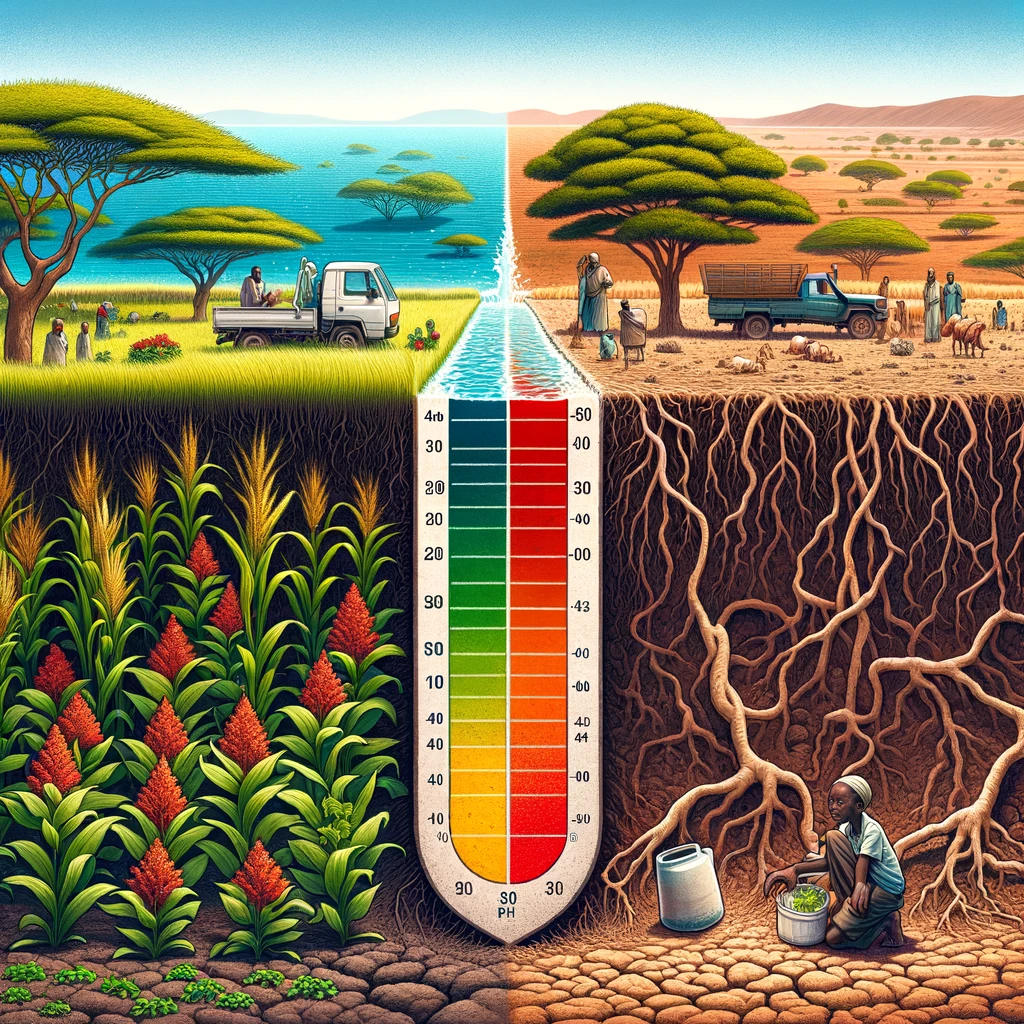By Elizabeth Shumbusho, Kilimokwanza.org Contributor
In an enlightening revelation by the Food and Agriculture Organization, scientists have made a significant discovery highlighting the indispensable role of soil in our agricultural ecosystem. Through meticulous research, they have identified that out of the 92 naturally occurring chemical elements on Earth, 18 are essential to plant life, with an impressive 15 of these elements being derived directly from the soil. This finding illuminates the profound and complex interplay between the health of soil, the fertility of crops, and the nutritional value of the food we consume.
Collaborative research conducted by a team of experts from prestigious agricultural institutions has delved into the intricacies of soil’s contribution to plant nutrition. Their findings reveal a direct link between the well-being of soil and the essential elements necessary for the vigorous growth of plants. Soil, acting as a natural repository, provides plants with these essential nutrients, which subsequently enter our food supply.
“Empowering farmers with knowledge is crucial for the widespread adoption of sustainable soil management practices. Government around the world are launching initiatives to promote soil health, offering training programs, subsidies, and incentives for adopting eco-friendly farming practices” stated Food and Agriculture Organization (FAO Report)
Among the 15 essential elements plants absorb from soil are vital micronutrients such as iron, zinc, and copper. These micronutrients are fundamental to plant development and significantly influence the nutritional value of the resulting crops. Hence, the condition of the soil directly affects the nutritional benefits we derive from our food.
This breakthrough is particularly pertinent at a time when global concerns regarding food security and nutrition are escalating. The implications of this research are far-reaching, extending beyond the realm of agriculture to encompass aspects of public health and sustainable farming practices. In response, farmers, policymakers, and environmentalists are rethinking their soil management strategies to ensure a resilient and nutrient-dense food supply.
Initiatives promoting soil health are gaining traction, with an emphasis on sustainable farming practices, organic agriculture, and responsible land stewardship. These research findings highlight the critical importance of such practices in protecting the nutritional integrity of our food for both present and future generations.
In our current era, marked by growing environmental sustainability concerns, attention is increasingly focused on a vital component of agriculture: the sustainable management of water and its direct influence on soil moisture. As the world confronts the challenges posed by climate change and its impact on agricultural methods, a new era of innovation is emerging, poised to transform the way we cultivate our crops.
One of the foremost challenges in contemporary agriculture is the judicious utilization of water resources. In recognition of the critical need for water conservation, farmers and agricultural specialists are turning to advanced technologies and sustainable practices to maximize water efficiency. Precision irrigation systems, soil moisture sensors, and drip irrigation techniques are at the forefront of this movement towards sustainable water management.
Precision irrigation systems, equipped with sophisticated real-time data analytics, empower farmers to provide the precise amount of water needed at the roots of plants. This targeted approach not only optimizes water use but also minimizes the environmental footprint associated with excessive water consumption.
In the realm of efficient water management, soil moisture sensors are proving to be invaluable assets for farmers. These sensors offer real-time insights into the moisture content of the soil, enabling farmers to make well-informed decisions regarding irrigation timing and water application. By comprehending the specific moisture requirements of various crops at different stages of growth, farmers can refine their irrigation techniques. This not only conserves water but also promotes healthier plant growth.
A significant shift in irrigation methods is underway, with traditional flood irrigation giving way to more sustainable alternatives like drip irrigation. This method distributes water directly to the plant’s root zone via a network of tubes, pipes, and valves, reducing water wastage and evaporation. Drip irrigation not only conserves water but also boosts nutrient uptake, fostering strong plant growth.
Looking ahead, the integration of technology in agriculture is essential to address the challenges brought about by climate change and to bolster the resilience of the agricultural sector. As the global population burgeons and the demand for food rises, the adoption of sustainable agricultural practices becomes increasingly crucial.
The future of agriculture hinges on our capacity to sustainably manage water and maintain optimal soil moisture levels. By embracing innovative solutions and practices, farmers across the globe are laying the groundwork for a more sustainable and verdant future. This not only promises abundant harvests but also safeguards our precious water resources for future generations.
As our comprehension of the complex web of interconnections between soil, plants, and human nutrition deepens, the urgency for a worldwide commitment to sustainable agriculture intensifies. The key to a healthier, more nourished world lies beneath our feet, in the very soil that nurtures life.
